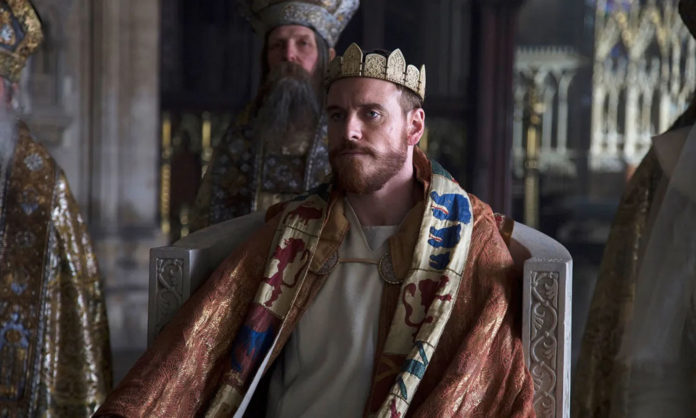In a post on CrimeReads, Nicholas Binge says that MacBeth and Othello taught him more about psychological horror than Shakespeare’s more violent works. “After more than a decade of teaching his work, I’ve come to see Shakespeare—at least when he’s writing tragedies—as primarily a horror writer,” he says. “He might perhaps be the most significant influence in the entire English language to the Gothic, and consequently the modern, horror tradition.”
Titus Andronicus is Shakespeare’s Grand Guignol, with stabbings, beheadings, dismemberments, and cannibalism, but Binge says the gore is less horrifying than some of the psychological twists of his other plays. “As he grew as a writer, he learned there are better ways to emotionally wound an audience than the surface kills and thrills, and it’s this that ends up really defining him as a playwright,” he writes.
MacBeth includes many of the gothic tropes that inspired latter day horror, including ghosts, witches, prophecies, castles, and desolate environments, but the real horror is what happens to the characters psychologically. “We are forced to watch on as Macbeth, by all accounts a noble and loyal warrior at the start, loses his identity, his morals, and with them, his sanity,” Binge notes. “That your own mind is not to be trusted, filled with poisonous stingers that might jab you at any instant, unsettles in a way that a good beheading never quite can.” A similar fate befalls Lady MacBeth, who cannot wash the metaphorical blood from her hands.
In Othello, Shakespeare plays with identity and trust, which Binge compares to John Carpenter’s The Thing. “When faced with uncertainty, who do you believe and who do you doubt? Where do you place your trust?” Binge asks. In The Thing, the answer is unclear, but not so in Othello. “In Othello, we are forced to watch on as we know exactly who to trust and who not to, even as the characters themselves make the wrong choices,” Binge notes. “The villain of the piece, Iago, is a man everyone on stage trusts, and he delights in his villainous asides to the powerless audience, where he tells us exactly what he’s going to do to the trusting cast.” The villain Iago feels no guilt, but the audience does. The role “underscores for me one of the most important and counter-intuitive lessons in horror: it’s so much worse when we know what’s coming, but must watch anyway,” Binge writes. “It’s like watching a car crash in slow motion and there’s nothing we can do to stop it.”












